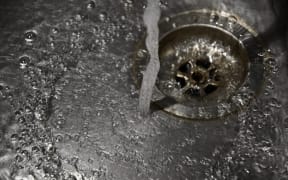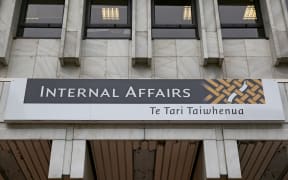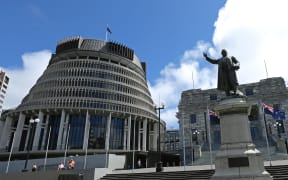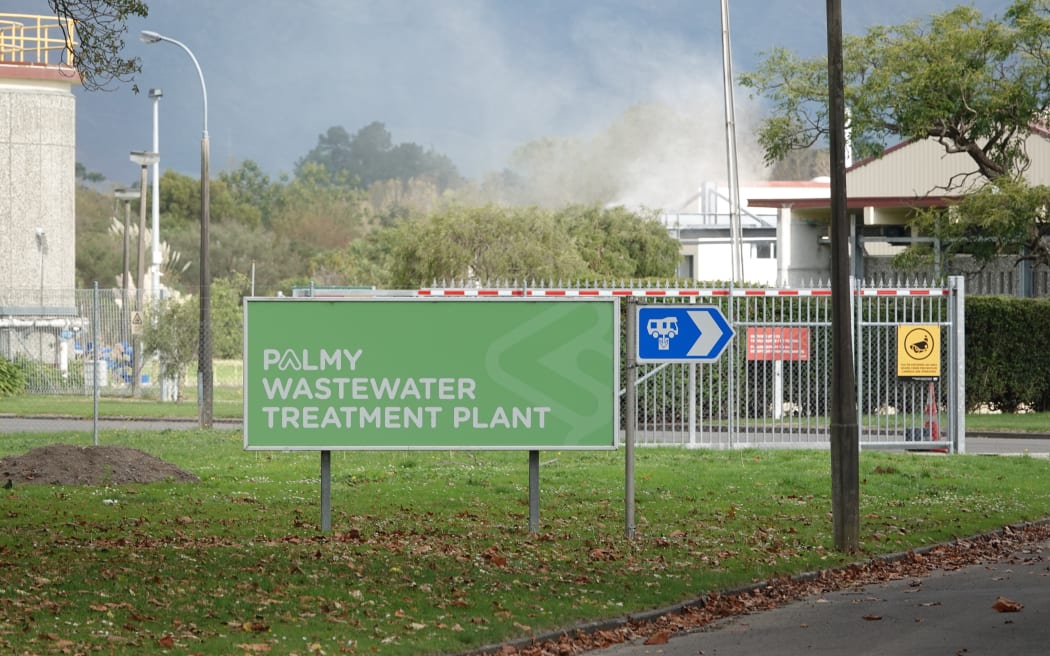
Palmerston North's new wastewater treatment system could cost almost $650 million. Photo: RNZ / Jimmy Ellingham
Every ratepayer in Palmerston North could face an annual bill of at least $1000 for 30 years to fund a new sewage treatment system.
It is a situation that could be repeated across New Zealand as councils are warned there are no more free lunches when it comes to water.
In Palmerston North, city mayor Grant Smith knows city ratepayers will have to dig deep for the new wastewater system, part of the Nature Calls project.
"When I arrived in the job nine years ago the project was a $30 million upgrade. It's now $640-odd million."
That was a high-end estimate, he said, and one that was included in council consultation for its latest long-term plan.
The cost for the upgrade was not included in the plan, but some preparatory work was.
The previous government's Three Waters and Affordable Water Infrastructure programmes would have taken such costs off councils' books, but that ship had sailed.
Councils such as Palmerston North now have to find their own ways to pay.
"We're looking at the plant build itself through what they call an IFF - it's infrastructure funding and financing," Smith said.
"It's a mechanism that the government set up to fund big projects off balance sheet.
"We're looking at doing that in the same way that Tauranga City Council's done roading projects and transportation projects, and Wellington City Council's looked at its own wastewater and sludge plant at Moa Point."
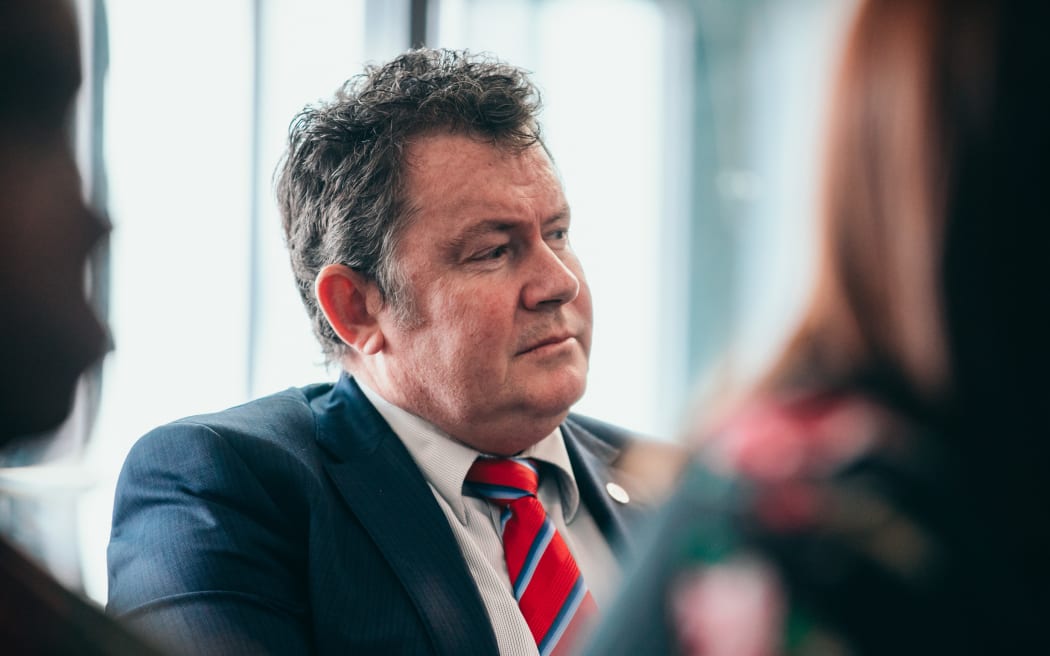
Palmerston North mayor Grant Smith. Photo: RNZ /Dom Thomas
The council wants to set up a new Palmerston North entity with money from government agency, Crown Infrastructure Partners.
That entity would then levy ratepayers to recover the debt - on top of regular rates - as the council says it cannot afford to take on the heavy debt required.
The present charge for wastewater in rates would go, but that was small compared with the coming costs.
Smith said he hoped the $1000 a year figure per ratepayer would come down if others joined the scheme, and helped cover costs, rather than renewing their discharge consents.
"What we put out [in public consultation documents] is the worst-case scenario. My own gut feel on things is it won't be anywhere near $1000.
"We hope to bring commercial or trade customers with us. It's going to be bringing businesses, government entities, military... and other trade waste customers all coming into one plant."
The city council would ask central government to make a contribution, too, as many new water standards were "lumped" on local government.
That was no given, nor was it that the Crown funding agency would give this arrangement a tick.
But, Smith said, it would be odd if that did not happen because the Crown agency was set up for this type of deal.
He described Palmerston North's approach as a pilot for other centres.
It was well over a decade since the Horizons Regional Council warned that the present means of wastewater discharge into the Manawatū River wasn't good enough, and it won't get a consent from 2028.
After public consultation, the city council decided to go with a new system treating water to a high standard and discharging it to land - 760 hectares is required - and the river.
Smith said it was a middle option of those on the table, and took into account environmental and cultural concerns as well as costs.
Even the cheapest option was still "pretty expensive", as would be finding the 760ha. It was not yet clear how that land would be acquired, or where it would be.
Smith said the wastewater would be treated to such a high standard that he preferred to call it "resource water".
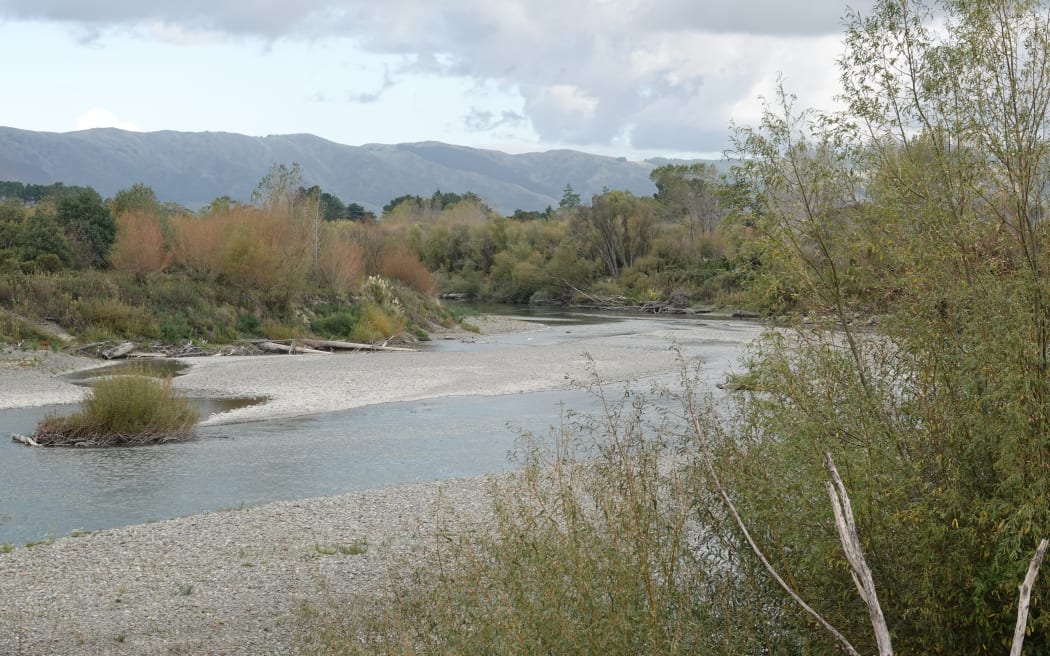
Palmerston North has consents to pipe its treated wastewater into the Manawatū River until 2028. Photo: RNZ / Jimmy Ellingham
Under the present coalition government's Local Water Done Well scheme, neighbouring councils can combine to create a water entity, as a council-controlled organisation, and spread costs.
However, it was unlikely others would want to come on board with Palmerston North.
Smith said it was sad the previous government's Three Waters scheme became so politicised.
"The minister, or several ministers of the former government, chose some wrong paths and mixed up ownership models with it," he said.
"We're $9m into [the replacement scheme] and out of that not a dollar has been spent on upgrading the plant, so it's an incredibly long and hard process, and that's why we do need to get a 30-35-year consent, not the 10-year consent."
Many local governments 'kicked the can down the road'
Some Palmerston North ratepayers RNZ spoke to did not know about the levy they were facing in coming years, and talk of it was met with a loud chorus of boos at a ratepayers' public meeting this week.
Others spoken to were not happy about the cost, but knew the work was needed - a pensioner said she would have to spread the cost over the year, as she did with rates and insurance.
Victoria University school of government senior lecturer Dr Julia Talbot-Jones said New Zealand was facing infrastructure problems after years of politicians and councillors not wanting to tell people to pay now to benefit the future.
"The cost of repair and replacement has been estimated at up to $185 billion in the next 30 years and the main issue is that water infrastructure represents the classic inter-generational problem.
"Many local governments have just kicked the can down the road."
More kicking was no longer an option, although Talbot-Jones questioned if the Palmerston North City Council's plan was to hold out for the previous government's reforms.
"It appears in the case of Palmerston North's wastewater treatment plant that the council pushed through an extremely expensive project under the assumption that Three Waters would go through and the cost of delivery would be taken off their books."
Instead, the city was now on its own as the Local Government Done Well scheme kept management and costs of water infrastructure with local government.
"There's certainly going to be no free lunches when it comes to water infrastructure. New Zealanders will face high costs to fund this investment," Talbot-Jones said.
"This means the costs of delivering [the] three waters will fall on ratepayers through levies or increased rates."
She said no other authority would want to join forces with Palmerston North and take on its projected wastewater debt.
Using Crown funding was not uncommon - between 2020 and 2022 38 councils registered an interest in partnering with central government for water infrastructure upgrades, and in 2022 there was a 37 percent annual increase in three waters investment across the 67 councils.
However, the future of such cost sharing was unclear, Talbot-Jones said, as were other aspects of Local Water Done Well.
She said Palmerston North's experience would inform other councils' future moves.
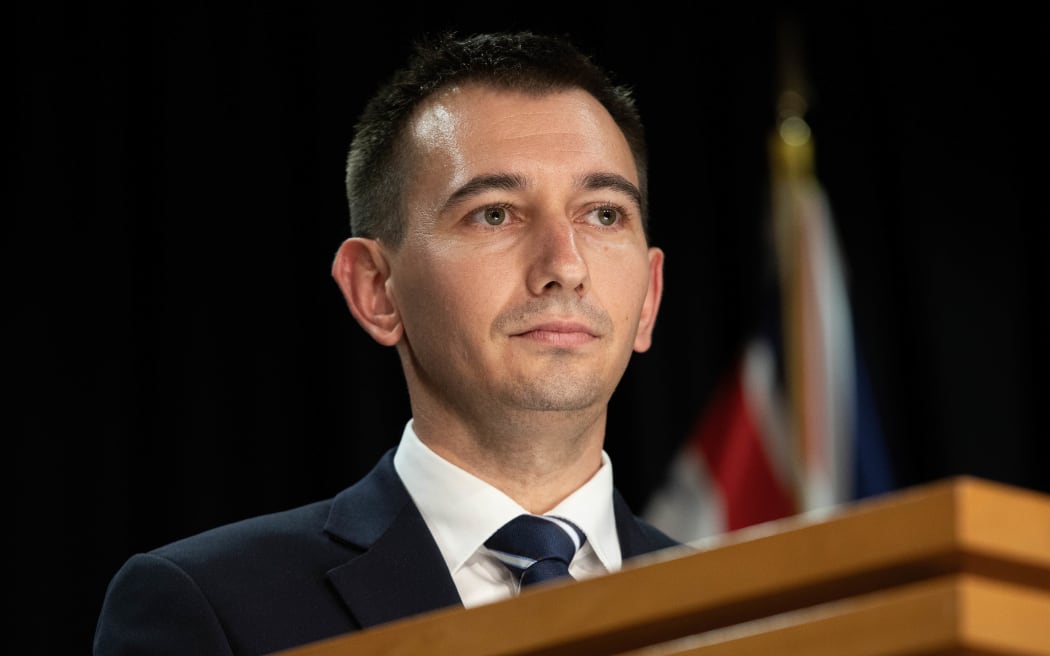
The government does not have direct say over rate costs, says Local Government Minister Simeon Brown. Photo: RNZ / Angus Dreaver
RNZ asked Local Government Minister Simeon Brown if it was acceptable for such costs to be placed on ratepayers and what could be done if that were a council's only option; if central government would make a contribution to the Palmerston North scheme, and how Local Water Done Well could help.
In a statement, Brown said as minister he was concerned any time he heard about ratepayers facing large-scale charges.
"Responsibility for setting rates sits with councils and is not something that the coalition government has direct say over," he said.
"The coalition government was elected on a promise to reverse Labour's divisive and unpopular Three Waters legislation and replace it with our Local Water Done Well plan.
"Local Water Done Well will see local councils retain control of their water assets, while giving them flexibility and funding tools to determine how their water services will be delivered in the future.
"This will allow them to work with other councils to organise [council-controlled organisations] which can achieve greater access to borrowing to spread the costs of these assets over time, economies of scale, and greater standardisation to reduce costs."
